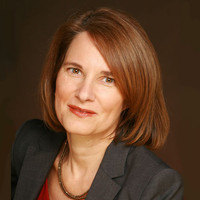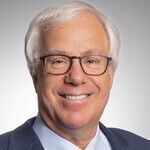"Sarsaparilla" captured the period flavor, oh, about a century ago.
Cleveland in June 1908: The first national spelling bee was organized by my great-grandfather, Warren Hicks. Those who had just finished the eighth grade competed to make city teams. Cleveland's team had several Jewish children and one "colored" girl, Helen Bolden.
1908 stood out as the zenith of an optimistic era. It was the last year of Theodore Roosevelt's upbeat presidency and the first year of Henry Ford's automobile. Steamships, streetcars and handsome municipal buildings improved life for the wealthy and the immigrant alike. John D. Rockefeller lived large on Euclid Avenue. Labor laws to make workplaces safer and fairer gave it the name: the Progressive Era.
Hicks, assistant superintendent of schools, rounded up a crowd, motivated by the National Education Association meeting in the new Hippodrome. Cleveland's civic pride was at stake — "The City on the Lake" was the fifth largest city. And they all came — from as far north as Boston and Buffalo, as far south as New Orleans. Scores of bright-eyed spellers.
The New Orleans team of 14 girls and 1 boy was favored to win. Taking the train, crossing over miles to "the North" was a big deal. They arrived early to see the sights, to have picnics and go boating on Lake Erie. Their pictures were in the paper.
Then the American tragic flaw reared its vicious head. The New Orleans teachers noticed Helen and demanded she be removed from the host team. Otherwise, they would boycott and spoil the bee. Down South by the Mississippi River, Jim Crow was alive and well in New Orleans.
Race in the Midwest is not often discussed, but in the 1850s, Cleveland citizens rang church bells to warn runaway slaves when slave-catchers had entered the city. Fifty years on, Hicks, 42, and the school superintendent, William Elson, did the right thing. They declared Helen earned her place, noting she had just made the team as the No. 15 speller. They persuaded the New Orleans teachers to let their team stay and spell. How much easier it would have been to let Helen go.
Teachers, judges and spellers filled the Hippodrome at the grand opening. What is it about spelling bees that draws us, to this day, like, um, bees to honey? They are a uniquely American tradition ever since life on the prairie, a way to standardize American English in a nation of immigrants. They are also the best fun.
That day, onstage, only one speller did not miss a word: Helen Bolden. The throng broke into wild applause, and even "the little girls from the South" stood to cheer, my great-grandfather recounted.
The scene was electrifying. The great educator Booker T. Washington attended as a convention speaker and commended Helen. The bee story travelled quickly to black churches in the South and even across oceans to Europe and Africa. It was considered an example of American democracy.
1908 gives a refreshing reminder of when America was America again, to quote Langston Hughes' double-edged poem. As refreshing as a glass of sarsaparilla.
Hicks named Helen the first national spelling champion of the United States. He said her win proved "every boy and every girl has a fair and even chance" — in the public schools. Born in 1865, when the Civil War ended, he lived to be 100. As a young girl, I saw my great-grandfather with all those candles on the cake.
Helen and Hicks would never know that 100 years after her improbable win, a black man would be elected president of the United States. But they did their part to further social justice.
To find out more about Jamie Stiehm, and read features by other Creators Syndicate writers and cartoonists, visit www.creators.com.






View Comments